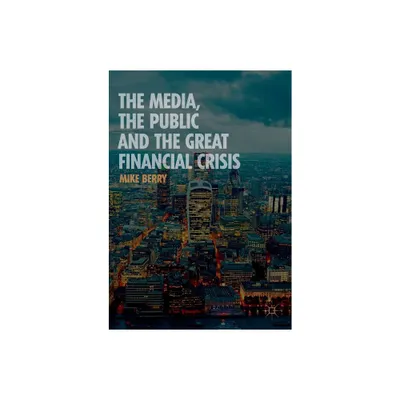Home
Framing Austerity: Print Media Portrayals of the Public Sector During Irish Financial Crisis
Loading Inventory...
Barnes and Noble
Framing Austerity: Print Media Portrayals of the Public Sector During Irish Financial Crisis
Current price: $100.00


Barnes and Noble
Framing Austerity: Print Media Portrayals of the Public Sector During Irish Financial Crisis
Current price: $100.00
Loading Inventory...
Size: Hardcover
*Product Information may vary - to confirm product availability, pricing, and additional information please contact Barnes and Noble
This monograph examines the ways in which discourses on the public sector were articulated in the print media during the 2011 financial crisis in the Irish, UK and European news media. It finds that coverage of the public sector was ideological, portraying public sector workers as overpaid, inefficient, and sheltered from the worst of the crisis. These explanations perpetuated the view that there was a need for austerity through cutbacks to public services and public sector pay. The central thesis is that these representations must be understood as being part of the complex organisational culture of the newsroom. Additional themes explored in the book include but are not limited to:
Media ownership concentration and journalistic self-censorship.
The marketisation of news and its impact on journalistic practice.
The casualisation of the newsroom.
The fourth estate function of the media.
The discourse of austerity.
Neoliberalism as a dominant ideology.
Reflexivity in the newsroom.
The crisis of credibility in journalism.
Media portrayals of The “Looney” Left versus the “Reasonable” Right.
Media ownership concentration and journalistic self-censorship.
The marketisation of news and its impact on journalistic practice.
The casualisation of the newsroom.
The fourth estate function of the media.
The discourse of austerity.
Neoliberalism as a dominant ideology.
Reflexivity in the newsroom.
The crisis of credibility in journalism.
Media portrayals of The “Looney” Left versus the “Reasonable” Right.


















